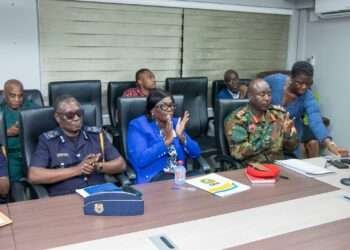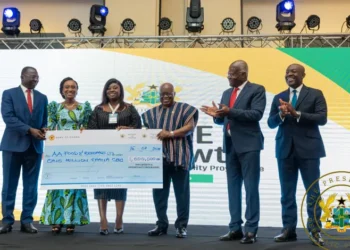Rev Dr Worlanyo Mensah, an Economist and the Executive Director of the Centre for Greater Impact Africa (CGIA), underscored the pressing need for Ghanaian businesses to receive comprehensive education and capacity building to fully harness the opportunities presented by the African Continental Free Trade Area (AfCFTA).
Despite the AfCFTA boasting a formidable combined GDP of approximately US$3.4 trillion and a population of 1.3 billion people, many Ghanaian businesses find themselves grappling with the complexities of this expansive market.
Dr Mensah emphasized that a crucial barrier hindering their success lies in the inadequate understanding of how to navigate and capitalize on the key areas of trade and investments within the AfCFTA.
The AfCFTA, established to create a single market for goods and services across Africa, holds immense potential for businesses to thrive on a continental scale. However, the sheer size and diversity of the market demand a nuanced approach.
Dr Mensah stressed that education tailored to the intricacies of the AfCFTA, coupled with targeted capacity building, is paramount for businesses aiming to venture into this transformative economic landscape.
Ghana, as a key player in the region, stands to gain significantly from active participation in the AfCFTA. Dr Mensah urged policymakers and stakeholders to prioritize initiatives that provide practical insights and knowledge-sharing platforms for businesses.
This, he believes, will empower them to identify and seize specific market opportunities, ensuring a more strategic and informed approach to trade and investments under the AfCFTA.
Challenges Faced by Businesses in Understanding the AfCFTA Market Dynamics
The challenges faced by businesses in understanding the AfCFTA market dynamics underscore the necessity for collaborative efforts between the government, industry experts, and educational institutions.
Dr Mensah’s call for adequate education and capacity building serves as a rallying cry for a holistic approach towards equipping Ghanaian businesses with the tools they need to thrive in the era of Pan-African trade.
“Citizens and the business communities are not receiving the needed education they ought to get to explore AfCFTA in its fullest. The focus should not only be on the publicity but the Education on how to explore the opportunities.”
Rev Dr Worlanyo Mensah
The Economist made this known during the 10th public lecture on trade and business organised by Centre for Greater Impact Africa under the topic: “Continental Trade and Ghanaian Business Community.”
The Executive Director said Government Ministries, Departments and Agencies (MDAs), trade associations and agencies responsible for promoting trade and investments must collaborate with private sector to take education to the doorsteps of Ghanaian businesses.
He called on businesses to develop their capacities in research, build up marketing departments that to identify countries with their needs, the quantity to produce and the channels to use for distribution.
“Businesses that could not do research, should contract researchers in the fields of trade and investments to do so, create innovative ideas and policies for them.”
Rev Dr Worlanyo Mensah
Rev Dr Mensah indicated that businesses must employ technology as key driver from manufacturing to distribution especially robotic technology and artificial intelligence to scale up industrialisation.
Dr Forgive Kwadamah, Lecturer Finance and Banking, College of Distance Education, University of Cape, noted that the government must help tackle the issues of infrastructure, regulations and finance and encourage innovation.
He stated that Ghana’s participation in AfCFTA will reduce cost of production in the Ghanaian business community and would improve the bottom line of businesses.
“Our participation will strengthen the Cedi and give the business communities value for money. AfCFTA is capable of redeeming the Ghana Cedi from its perennial depreciation.”
Dr Forgive Kwadamah
Dr Forgive Kwadamah stated that Intra-Africa exports were woefully 16.6 per cent of the entire export in 2017, juxtaposed to 68.1 per cent in Europe, 59.4 per cent in Asia, 55 per cent in America and 7 per cent in Oceania.
The road to unlocking the full potential of the AfCFTA for Ghanaian businesses lies in bridging the knowledge gap. As the nation gears up for increased participation in this groundbreaking initiative, a concerted effort towards education and capacity building emerges as a strategic imperative, laying the foundation for sustainable economic growth and prosperity.
READ ALSO: Funeral Held For Journalist Killed In Israeli Strikes





















